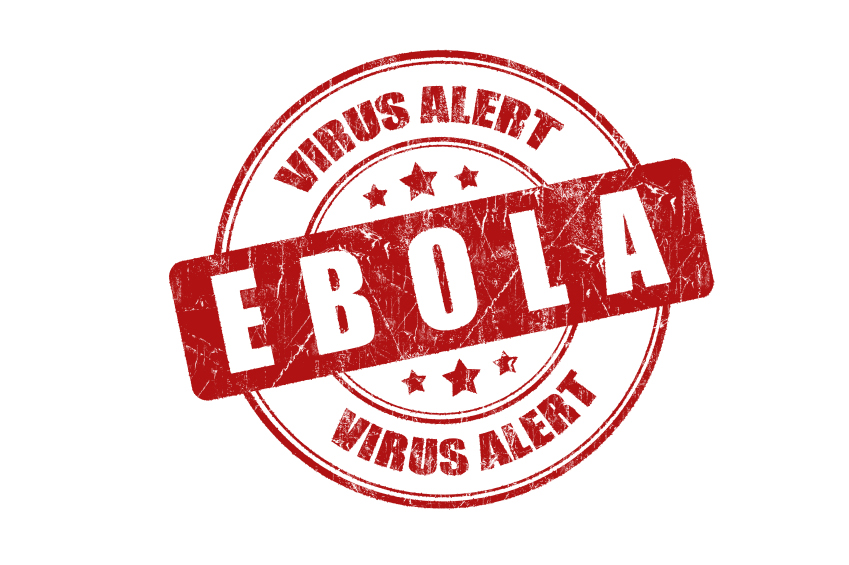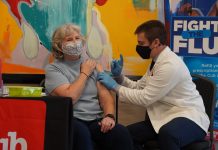
 Right now, there is an Ebola outbreak occurring in four West African countries – Liberia, Sierra Leone, Guinea, and Nigeria. No one has contracted Ebola disease in the United States or Minnesota. The risk of catching Ebola disease is extremely low, but there are a lot of questions about the disease.
Right now, there is an Ebola outbreak occurring in four West African countries – Liberia, Sierra Leone, Guinea, and Nigeria. No one has contracted Ebola disease in the United States or Minnesota. The risk of catching Ebola disease is extremely low, but there are a lot of questions about the disease.
What is Ebola?
- Ebola is caused by the Ebola virus. It affects many of the body’s organ systems and often causes severe illness.
- Symptoms of Ebola most commonly start 8-10 days after coming into contact with Ebola virus but can occur as early as 2 days to up to 21 days after exposure. Symptoms include:
- Fever
- Headache
- Joint and muscle aches
- Weakness
- Diarrhea
- Vomiting
- Stomach pain
- Lack of appetite
- Abnormal bleeding
How is Ebola Spread?
- Ebola is spread by direct contact with blood or other body fluids (such as: vomit, diarrhea, urine, breast milk, sweat, semen) of an infected person who has symptoms of Ebola or who has recently died from Ebola.
- It can also be spread on objects or surfaces contaminated by body fluids of an infected person, for example clothing or bedding of an ill person that have not been cleaned.
- Ebola can only be spread from one person to another when someone has symptoms.
- · Ebola is not spread through food, water, or the air.
Who Can Spread Ebola to Others?
- For a person to spread Ebola to others, they must have:
- Been in an area where Ebola disease is occurring in the last 21 days, AND
- Been in contact with the blood or body fluids of a person who is sick with or has died from Ebola, AND
- Developed Ebola symptoms.
Who is at Risk?
- · The risk of catching Ebola in the general public is extremely low.
- · There has not been any transmission of Ebola in the United States.
- · Ebola is not spread by casual contact with someone who has traveled to countries in West Africa with Ebola outbreaks.
- · Health care providers or family members caring for a person with Ebola are at highest risk because they may come in contact with blood or body fluids.
Is it Safe to Travel Overseas?
- Yes. It is safe to travel overseas.
- The Centers for Disease Control and Prevention (CDC) updates travel advisories routinely. Currently the CDC recommends that people not travel to Liberia, Sierra Leone, and Guinea where Ebola outbreaks are occurring unless it’s essential, such as providing humanitarian aid work in response to this Ebola outbreak. They also recommend that travelers to Nigeria take additional steps to protect themselves. These recommendations may change, so check the CDC website before planning travel (http://wwwnc.cdc.gov/travel/notices).
- CDC has procedures in place to try to prevent ill passengers from getting on a plane in West Africa. CDC also has protocols if an ill passenger were to travel to the United States.
- If you are planning to travel outside the United States:
- Discuss your travel plans with your health care provider before you go.
- Check the CDC Traveler’s Health website for updates on travel notices for specific diseases and countries: http://wwwnc.cdc.gov/travel/notices.
- After you return from a trip outside the United States:
- Call your doctor or clinic right away if anyone gets a fever, headache, joint and muscle aches within three weeks of returning home.
- o Tell your doctor where you traveled, what you did, and if you had contact with anyone who had Ebola.
Should I Avoid Contact with a Relative, Co-Worker, Classmate, Neighbor, or Anyone Else that Recently Traveled to West Africa?
- No. You do not need to avoid contact with someone who has recently traveled to a country where an Ebola outbreak is occurring.
- Ebola is spread through direct contact with blood or body fluids. It is only spread when a person is showing symptoms.
- If a person who recently traveled to West Africa has symptoms of Ebola (including fever) they should contact their health care provider and tell them about their travel history. Their health care provider will evaluate their risk for Ebola as well as other more common infections of West Africa such as malaria and typhoid.
Where Can I Get More Information?
- Information about Ebola disease
- Minnesota Department of Health website: www.health.state.mn.us/divs/idepc/diseases/vhf/
- Centers for Disease Control and Prevention website: www.cdc.gov/vhf/ebola.










